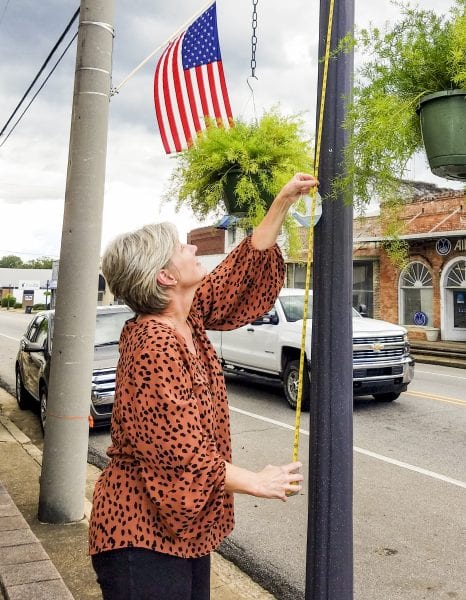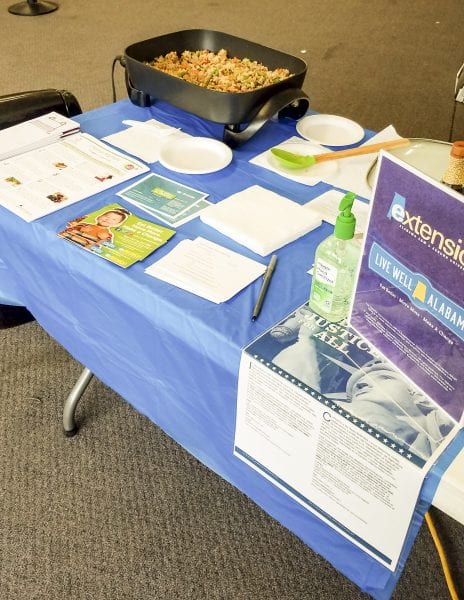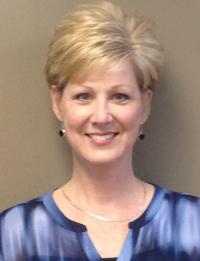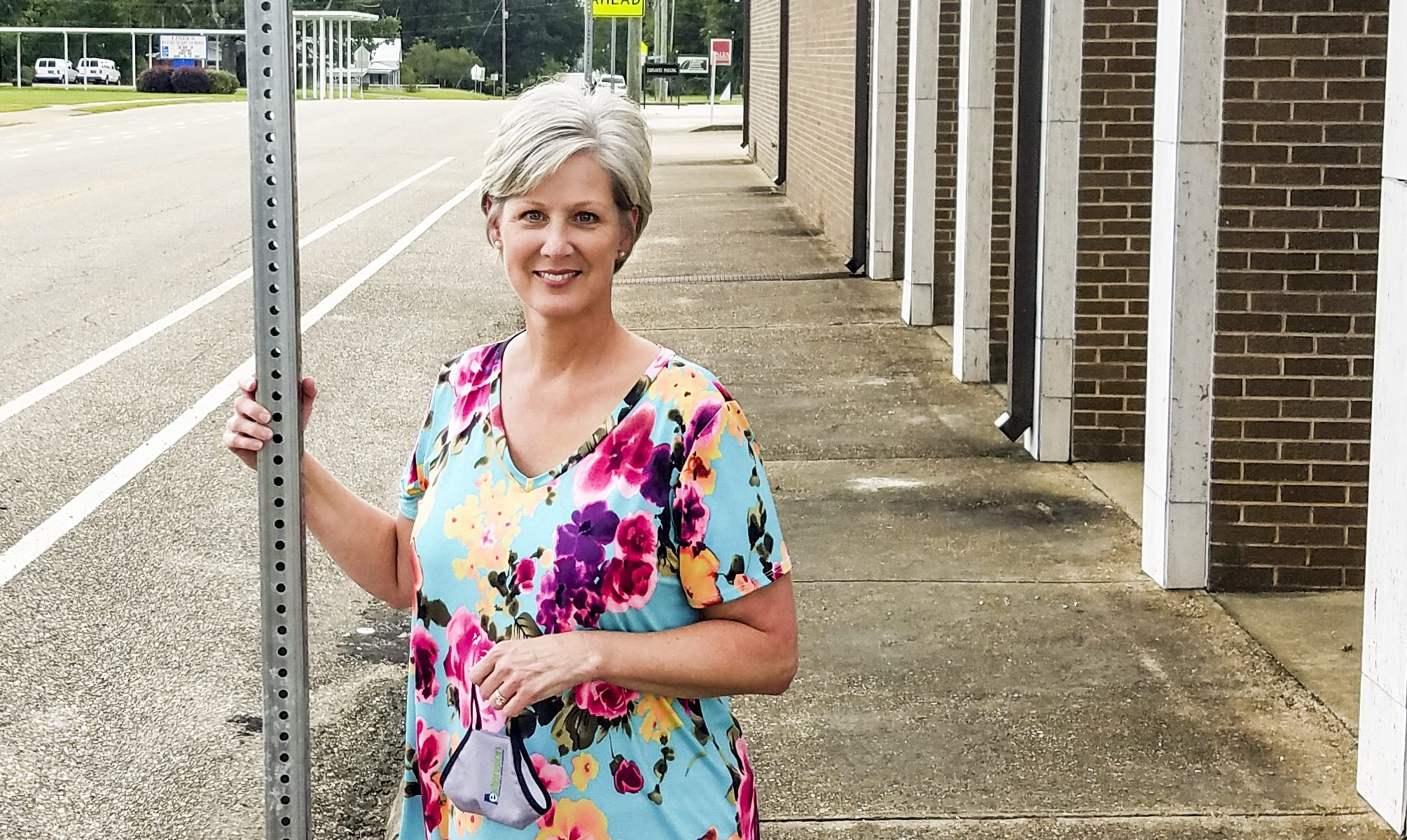Live Well Alabama

Tammy Glass made sure to stay busy as a SNAP-Ed educator in Choctaw and Marengo counties, even after COVID-19 forced many face-to-face interactions to cease.
A Healthy Community
Through her work with ALProHealth in Marengo County, the Shiloh Street Project ensured the public could remain active even if they had to socially distance. The project connects Linden, Alabama residents to healthy food resources and creates a pedestrian-friendly environment to encourage physical activity. When COVID-19 hit, project members realized that although in-person activities had ceased, they could still make strides to transform Linden into a more walkable and bikeable community.

Tammy Glass takes measurements as part of a project to improvement street lighting in downtown Linden, Alabama.
The project has resulted in bike lanes added on Shiloh Street, which runs parallel to Main Street in Linden and by Liden High School. The project also resulted in the installation of new road signage for a safer school drop-off and crossing area as well as the addition of solar street lighting and other improvements to downtown lighting. When the project is complete, Glass says Linden residents will have a well-lit, safe, and visually pleasing community environment to walk and bike to the local grocery store, post office, pharmacy, and retail stores.
Work with Nutrition Education
In Choctaw County, Glass is a regular partner with F.A.I.T.H. Groceries Food Bank (Food Always In The Home), the local food bank. The bank regularly reaches 120 families a month. Before COVID-19, Glass performed food demonstrations and tastings to engage pantry clients in nutrition education. After the COVID-19 pandemic ended many face-to-face interactions, Glass continued to provide recipe cards and educational materials to help clients make the most of food boxes the food bank distributed.

Shown above is a typical set up for a food demonstration at a food bank.
Glass was also involved with the backpack program in conjunction with the food bank. The backpack program reaches 175 children weekly, even during the pandemic. The program’s goal is to put six entrées, two snacks, and shelf-stable milk in each backpack. They include fresh fruit when they can get it, and the average weight for a bag is around 4 lbs. As a SNAP-Ed educator, Glass provides educational materials to the food bank to be added to each backpack.
“I was proud to be a part of the continued student support that the food bank provided through its backpack program when COVID-19 hit,” Glass said.
Glass is grateful she can continue to provide nutrition education and inform the public about food needs, especially during the COVID-19 pandemic, when so many people may need extra help. She said SNAP-Ed’s partnership with End Child Hunger in Alabama (ECHA) is especially important to her because it’s making sure children throughout the state will have enough food to eat.
“People need us during COVID-19 more than ever,” she said. “Through social media and our educational presence at food banks, pantries, and emergency food distribution sites, and our efforts supporting the ECHA food resources website, I believe SNAP-Ed has risen to the occasion to meet each community’s need.”
To contact Glass, SNAP-Ed educator in Choctaw and Marengo counties, call (334) 295-5959 or email her at tgg0005@aces.edu.
To find more success stories about SNAP-Ed educators, visit LiveWellAlabama.com.

Tammy Glass, SNAP-Ed educator in Choctaw and Marengo counties.

